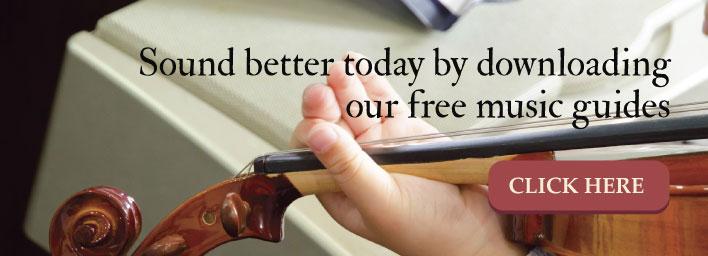5 Tips For Choosing An Acoustic Guitar

Like most instruments, selecting the right guitar is a very personal choice. It’s not an inexpensive instrument. You want to choose wisely. Make the right choice and you’ll have an instrument that inspires you to practice and to go off on creative tangents. Whatever your acoustic guitar selection process, make sure these tips have a part in it.
1. Understand your budget and what you can expect
Top of the line acoustic guitars can run into the thousands of dollars, some topping out over $10,000. If you want a guitar once played by a guitar legend, you’re looking at the high six figures to seven figures. For most of us, these guitars aren’t where we’re at.
As with any big purchase, your budget has to be driven by what you can afford. Don’t factor in missing a car payment or living on ramen noodles for the next six months to buy a guitar. Figure out what you can afford.
The materials used to fashion the guitar go a long way to determining price. An acoustic guitar with a laminate top, instead of solid wood type, is one area where you can find some economies. The solid wood top produces a richer sound and louder volume, no doubt. But an otherwise well-made acoustic guitar with a laminate top can be a good starting point if you have a lower budget.
If $300 is currently outside your budget, read through these tips to help you select the guitar you will buy once you save up the $300-400 you’ll need. Then post a pic of that guitar everywhere so you stay motivated to save.
2. What’s your skill level?
Always consider your experience when purchasing an instrument. As a new player, you don’t need all the bells and whistles that a high-end acoustic guitar boasts. You need an acoustic guitar that supports you as you learn the basics and master foundational techniques. There are plenty of beginner quality guitars to choose from. Selecting a beginner guitar is another way to keep you on budget.
If you are an experienced player looking to upgrade your guitar then take the time to do your research. Familiarize yourself with all those bells and whistles that come with higher end guitars and decide which ones are most important for your purchase. Some add visual artistic elements, but don’t impact sound. Others, such as using certain materials or designing unique cut-aways may well affect the sound of the instrument.
3. Do you want an acoustic or an acoustic-electric guitar?
You can go with a straight acoustic guitar if you’re starting out. If you’re at a point where you want to start performing to crowds larger than your backyard barbeque, or record your playing, you might want to consider an acoustic-electric guitar.
An acoustic-electric guitar isn’t some sort of hybrid. The bodies of the acoustic and electric guitar are quite different and produce their sound in very different ways. An acoustic-electric guitar has the body design of an acoustic guitar and functions just like any other acoustic guitar. The difference is that an acoustic-electric guitar is built with an electric component into which you can plug amplifiers. These amplifiers are great if you want to start recording your music or performing in front of crowds. Without amplifiers, you’ll have to use an external microphone near your straight acoustic guitar to get a useful recording or performance a crowd can hear.
4. Choose a guitar body style
There are four popular body styles you can choose from:
- Classic: A smaller body, derived from the classical Spanish guitar, they are great for finger picking. They’re notable for their small size and the inverse asymmetry of the shoulders near the neck.
- Dreadnaught: This is most common style with rock artists and songwriters. It’s wildly versatile, working well with almost any style of play, from folk to rock and even punk sounds. It projects more volume than the classic body style, which is another reason performers love the dreadnaught.
- Jumbo: A jumbo body is just that – jumbo. This super-sized acoustic guitar body provides lots of room for the sound to reverberate and blast out. Its shape is closer to that of a classic guitar, but without the intricate delicacy of the classical guitar. The jumbo is full of heft and bravado.
- Parlour: At the opposite end of the spectrum, the parlour guitar has a small body intended for more intimate settings. This can be a great choice for a beginner or someone who’s focusing on folk or indie music. It has two round shoulders, like the dreadnaught, but it’s on a smaller scale.
5. Play the guitar
How does it feel in your hands? It’s hard to choose a guitar without playing it first. Most store owners will allow you to play the guitar you are interested in before you make a purchase.
If you are trying to purchase your acoustic guitar online, you won’t have the option of playing the guitar beforehand. Unless the website has easy terms for returning, this probably isn’t a good way to buy your first guitar. If you insist, then at least head over to YouTube to check out demos and product reviews of the guitar you are interested in.


